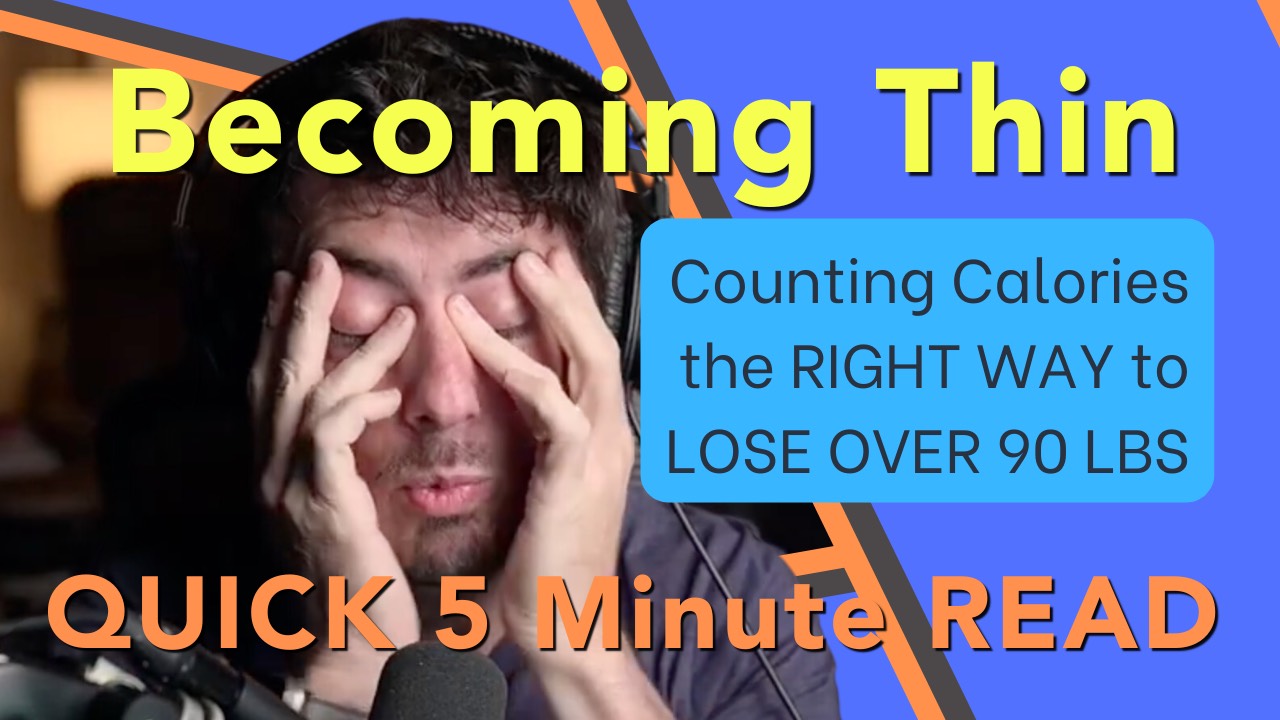
Why Tracking Calories Fails Most People (And How to Do It Right)
Mar 12, 2025
If you've ever started tracking calories with the goal of losing weight, only to quit within a week, you're not alone. In fact, you're part of the majority.
It seems like a simple equation: *Track calories → Eat less → Lose weight*. But if that were enough, everyone who started tracking would succeed. Clearly, that’s not the case.
So, what’s missing?
The Wrong Reason to Track Calories
Let’s get the most obvious reason out of the way. If your only goal is **“I want to lose weight,”** I’m telling you now—throw it out. We already know that’s a factor, but having just that one goal isn’t enough.
People track calories thinking weight loss is the motivation, but motivation fades. The reality? **Tracking calories is annoying.** It’s tedious. You’ll be doing it all the time, every day, for what feels like forever. And if your only reason is "I want to lose weight," that’s not enough to keep you going when you get tired of it.
So, why track calories? What’s the real outcome you should be aiming for?
## **The Real Goal: Awareness, Not Weight Loss**
Tracking calories isn’t a diet. It’s not even a weight loss tool. It’s **data collection**—just like keeping score in a game.
Think of a scoreboard in football. If the team stopped checking the score, they wouldn’t know whether they needed to play more aggressively or shift their strategy. The score doesn’t *win* the game, but it tells you how to play.
That’s what tracking does. It **raises your awareness** so you can make better choices.
The Two Types of Awareness
There are two kinds of awareness you get from tracking calories:
1. Accidental Awareness – The things you didn’t intend to learn but did anyway.
- “Holy crap, mayo has how many calories?”
- “Why does cheese sabotage my whole day?”
- “I thought I wasn’t eating much, but I’m snacking constantly.”
- “Wow, I actually wasn’t eating enough, and it made me hungrier.”
2. Intentional Awareness – The things you actively learn by analyzing your intake.
- “What foods keep me full the longest?”
- “How much protein do I really need?”
- “What’s the right balance of calories for my lifestyle?”
If you don’t track, these insights never happen. You won’t accidentally discover that peanut butter’s serving size is laughably small or that skipping meals makes you overeat at night.
Would You Swipe Your Credit Card Without Checking Prices?
Imagine if someone refused to check prices when shopping.
> “I don’t want to look at the cost of things because it makes me feel guilty.”
Ridiculous, right? Yet, many people avoid calorie tracking for the same reason. They don’t want to see the numbers because it makes them uncomfortable.
But awareness is the first step to change. If you don’t know how much you’re eating, you can’t make adjustments.
Tracking Isn’t Forever—It’s a Skill You Learn
Here’s the thing: If you track correctly, you won’t need to do it forever. Eventually, you develop **caloric awareness**. You start recognizing what’s in your food, just like you instinctively know the cost of groceries over time.
At some point, you might even hear me say, *“I think it’s time to stop tracking.”* And you’ll panic because tracking became your safety net. That’s when you know it worked.
Your Challenge: Find YOUR Reason
So, here’s your challenge. **Why do you want to track calories?**
And *you are NOT allowed* to say, **“Because I want to lose weight.”**
Find a reason that matters to you. Maybe it’s:
- Understanding why you feel full some days and starving on others.
- Learning why you crash in the afternoon.
- Figuring out how to eat in a way that fuels your workouts.
- Seeing if your “healthy” foods are actually helping or hurting.
Whatever it is, make it personal, Because if it’s not important to you, you won’t stick with it.
Final Thought: Are You Dieting or Becoming?
Most people who track calories focus on weight loss, then stop when they hit their goal—only to regain it later.
Why?
Because they were dieting. They weren’t *becoming* something new.
Long-term success comes from shifting your lifestyle, habits, and awareness. And tracking, when done right, is a powerful tool to help you do just that.
So don’t just count calories. Learn from them.
If you need more help with the long journey of BIG WEIGHT LOSS Find out more about the Guild of Champions to help you succeed
Stay connected with news and updates!
Join our mailing list to receive the latest news and updates from our team.
Don't worry, your information will not be shared.
We hate SPAM. We will never sell your information, for any reason.

